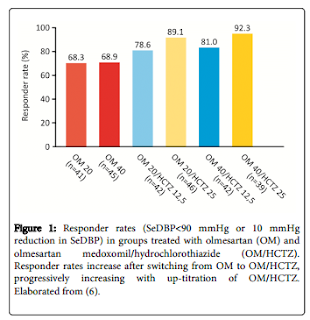High
blood pressure (BP) is a major risk factor for cardiovascular disease,
contributing to the premature death of millions of patients worldwide each year.
In the most recent 2013 Guidelines of the European Society of Hypertension
(ESH)/European Society of Cardiology (ESC) for the management of arterial
hypertension, high blood pressure is defined, based on results of randomized
controlled trials (RCTs), as a systolic blood pressure (SBP) ≥ 140 mmHg and/or
a diastolic blood pressure (DBP) ≥ 90 mmHg. According to recent epidemiological
surveys, the overall prevalence of hypertension in the general population
ranges from 30 to 45%, and increases markedly with age.
Increased
mean BP values correlate with the development of cardiovascular disease (CVD)
morbidity/mortality in a linear relationship; consequently, the greater the
reduction in blood pressure, the greater the reduction in the risk. ESC/ESH
Guidelines point out that the initial choice of antihypertensive medication
should be based on the magnitude of BP elevation, as well as on the concomitant
level of total cardiovascular (CV) risk. Read more..............

No comments:
Post a Comment